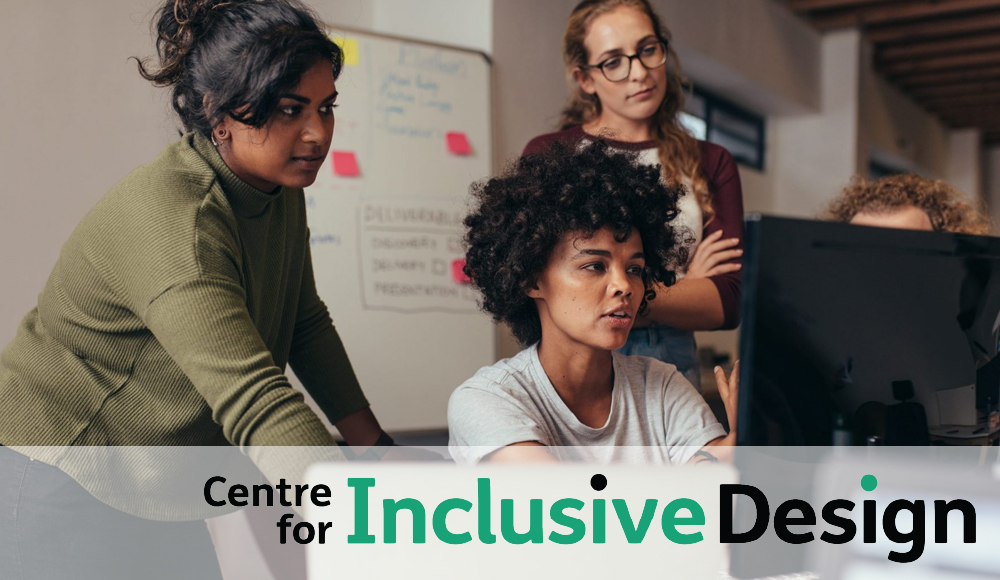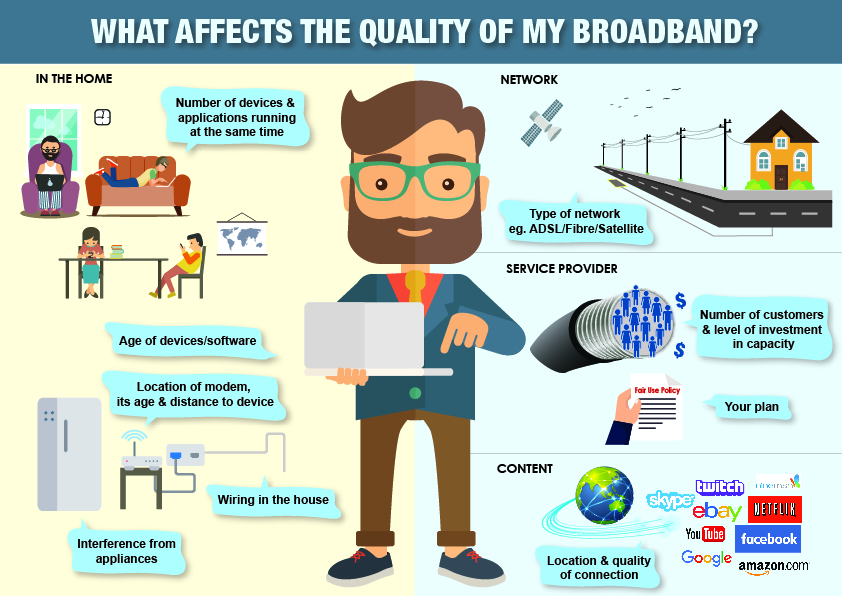Key Dates
Next Grant Round:
Applications for funding will open early 2025.
> Information about our Grants Program
Independent Grants Panel:
Results of the recent EOI will be notified Dec 2024.
> Information about our Panel
We can help: grants@accan.org.au
or phone 02 9288 4000
Subscribe to Grants Program mailings
Australian Communications Consumer Action Network (ACCAN) and the Public Interest Advocacy Centre (PIAC) commissioned research on how consumers experience their billing arrangements.
This research has found that some of the payment options that are offered by telecommunications providers to their customers are not suitable for people in vulnerable circumstances.
Some of the key findings of the research include:
South Australian Council on Intellectual Disability
People with intellectual disability are at greater risk to the dangers of the online environment. However, there is limited educational information presented in formats accessible to people with intellectual disability. This project will build on an existing co-designed introductory online safety workshop to develop a series of accessible training resources focused on online safety. A co-design approach will be used to develop, test and refine the products, and gather information about communications related barriers to inform future advocacy.
Visit SACID's website.
Read more: Co-designing accessible online safety resources for people with intellectual disability
The opinion piece below was written by ACCAN CEO Carol Bennett for The Canberra Times and Australian Community Media. It was originally published on 29 January 2025.
One of the most important bills to come before the Federal Parliament prior to the looming election will be a proposed framework for preventing scams.
Ahead of the parliamentary debate there seems a lot of discussion about ensuring there are adequate protections - but for who?
Read more: New anti-scam laws are a rip off, unless you're a bank or big business
Write comment (0 Comments)With the recovery from ex-Tropical Cyclone Alfred underway—and many parts of Australia's east coast still experiencing significant rain and flooding—attention must soon turn to how new communications technology that can support those in emergency situations due to natural disasters, says peak communications consumer body ACCAN.
Read more: ACCAN calls for modern emergency alert tech for natural disasters
ACCAN recently submitted to the Australian Communications and Media Authority (ACMA)’s proposal to amend the Telecommunications (Emergency Call Service) Determination 2019.
Read more: Proposed amendments to the Telecommunications (Emergency Call Service) Determination 2019
All content on this website that is not an external link or externally sourced and cited, is the property of ACCAN. You are free to quote from our media releases.
Individual publications on this website which are labelled as Creative Commons publications are licensed under the Creative Commons Attribution 3.0 Australia Licence. To view a copy of this license, visit http://creativecommons.org/licenses/by/3.0/au. You are free to cite, copy, communicate and adapt this work, so long as you attribute The Australian Communications Consumer Action Network (ACCAN) and/or any other authors.
If you intend to use ACCAN content please contact us to discuss any licensing restrictions. ACCAN retains a library of works and design files that may be made available to you to help you with your work.
Consumer Information, such as tip sheets, that are produced solely by ACCAN and distributed on its website are available for use by external parties under the following creative commons licence.

This work is licensed under a Creative Commons Attribution 3.0 Australia License.
ACCAN's Easy English logo is available for use under the following license:

This work is licensed under a Creative Commons Attribution-ShareAlike 4.0 International License.
Download: ![]() Easy English logo design set 139.27 KB
Easy English logo design set 139.27 KB
© Copyright 2021
The following information is for the Disability Equipment Programs offered by Telcos.
If you're finding it hard to pay your phone or internet bill, you are not the only one. Lots of people face unexpected circumstances at different times in their lives – like losing a job, having a relationship breakdown, becoming sick or even after bushfires, floods and cyclones.
The contact details of Optus, Vodafone and Telstra can be found on the Get Help page.
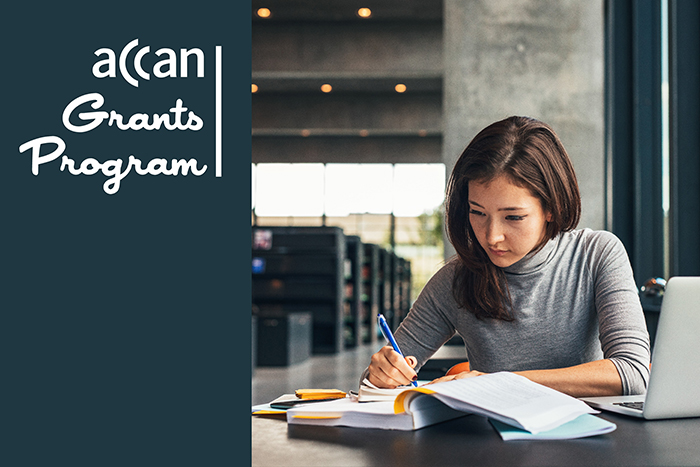 2024 Grants Round
2024 Grants Round
The next round of the ACCAN Indpendent Grants Program will open: Tuesday 30th January, 2024.
If you are thinking of applying, we encourage you to contact us in advance. The Grants Team is available all year round* to provide feedback on your project idea and answer any questions you have. Please Contact Us.
*Note that the ACCAN office will close December 22nd 2023 and reopen Monday 8th January 2024.
When the round opens, we will publish updated Guidelines and Priority Themes, which are expected to be similar to previous years. Below you can find information about last year's Round for your reference:
- 2023 Round Guidelines
- 2023 Round Priority Themes
- 2023 Round Timeline
- Who can apply?
- What is eligible?
- What won't get funded?
- Contact us
2023 Round Guidelines (2024 Guidelines COMING SOON)
Consult the Guidelines for everything you need to know about how the ACCAN Grants Program works, including eligibility, how to apply, the timeline and what to expect. These guidelines contain the rules for the Program and the assessment approach.
Download:![]() ACCAN Grants Program Guidelines 2023.docx4.69 MB
ACCAN Grants Program Guidelines 2023.docx4.69 MB
Download:![]() ACCAN Grants Program Guidelines 2023.pdf1020.47 KB
ACCAN Grants Program Guidelines 2023.pdf1020.47 KB
2023 Round Priority Themes (2024 Priorities COMING SOON)
All applications MUST be framed in terms of a specific consumer problem aligned with ACCAN's strategic plan.
If you are applying under the Research Stream, you MUST ALSO demonstrate alignment with one of the below Priority Themes. Priorities are formulated in consultation with ACCAN's stakeholders and change year to year.
2023 Priority Themes:
- Communications privacy and security e.g., cyber-security.
- Digital exclusion e.g., policy issues; practical responses; economic cost.
- Communications affordability e.g., Obstacles to device and service upgrades; mis-selling; sales tactics; financial hardship.
- Solutions to communications issues for remote consumers.
- Other topics which can demonstrate direct alignment with ACCAN’s strategic plan.
2023 Round Timeline (2024 Timeline COMING SOON)
|
Expressions of Interest round OPENS |
30 Jan 2024 |
|
Expressions of Interest round CLOSES |
TBA |
|
EOI Applicants informed of outcome |
TBA |
|
Full Application round OPENS (for invited applicants only) |
TBA |
|
Full Application round CLOSES |
TBA |
|
Full applicants informed of outcome |
30 June 2024 |
|
Funded projects can begin from |
1 July 2024 |
Who can apply?
Eligible projects come from a range of applicants, such as individual researchers, community organisations, local councils and universities – all you need is an ABN and some great ideas. Check our website to see previous grant recipients. We strongly encourage partnerships, so if you're interested in a partnership with industry, a community organisation or university, get in touch with us as we may be able to make an introduction.
What is eligible?
Eligible projects address telecommunications consumer issues. A telecommunications consumer issue is one that is systemic, persistent and generally widespread, affecting consumers in their use of telecommunications and internet services. The issue could be something that affects the general public or it might be an issue affecting a particular part of the community such as children, older people, or people with disabilities, but preferably one where multiple sectors would benefit from a solution.
It could be a project that addresses consumer rip-offs or people getting into debt over their phone or internet usage. Or you may be studying the regulatory space for telecommunications services in Australia. These are just some examples. Whatever your project, it fills an identified gap and improves telecommunications goods, services or information for Australian consumers.
Make sure you have a look at ACCAN's strategic plan, our policy priorities and website before applying.
What won't get funded?
We often see applications which use apps, websites or other technologies to benefit Australian consumers in some other way eg. to improve their health, educate them about community services, or deliver arts or wellbeing programs to Australians in need. While these are all worthwhile projects, they do NOT fall within ACCAN's remit and would be deemed ineligible under the ACCAN Grants Program. Your project needs to demonstrate outcomes for telecommunications consumers.
Questions to ask yourself include:
- How does my project improve the purchase or use of phone and internet services in Australia?
- What are the outcomes for the telecommunications sector? Is my project directed at telcos, telecommunications regulators, government or consumers with regards to their telecommunications use? - If so, then your project is likely within scope. If your aim is to improve other sectors, then your project is ineligible.
ACCAN's scope generally does NOT include content, unless that content is related to telecommunications eg. phone plans, billing, privacy of telco contracts, consumer rights with regard to phone or internet services.
If you're unsure if your project fits our Program, or even if you're sure it does, talk to us. If you give us enough time, we may even be able to provide feedback on application drafts.
For the full list of eligibility criteria, see the Guidelines.
Will ACCAN fund overheads?
ACCAN won't fund overheads, such as administration levies, general office space and so on. We don’t cover normal operating costs for an organisation to do its business either. The grant program funds clearly defined projects and project activity towards specific outputs.
We do cover all costs that are directly attributable to the project itself, e.g. project labour, project management, project accounting, or even office space and room hire if it can be justified as directly attributable to the project.
It all depends on how clearly the cost is related to the project - If you weren’t doing this project would the cost still exist? If yes, then we won’t cover it. Is it an arbitrary levy added by your organisation on top of the project? If yes, we won't cover it. We only cover costs for activities inside the project.
Contact us
We strongly encourage prospective applicants to phone or email ACCAN's grants team to discuss your project idea. Remember, applications are assessed independently, so we are able to help you develop your idea and hone it appropriately for the ACCAN Program. We're also available for any other questions you might have about ACCAN Grants.
Email: grants @ accan.org.au
Phone: 02 9288 4000
Or contact us via the NRS.
The purpose of the Small Business Advisory Forum (SBAF) is to discuss the most important telecommunications consumer issues from the perspective of key representative in the small business environment and the people they represent, with a view to incorporating these into ACCAN's work priorities.
Download: ![]() What affects the quality of my broadband brochure40.75 KB
What affects the quality of my broadband brochure40.75 KB
Download: ![]() What affects the quality of my broadband brochure404.28 KB
What affects the quality of my broadband brochure404.28 KB
Hello...hello...can you hear me..?
Is poor internet preventing you from talking with family and friends, watching your favourite shows or uploading photos of your recent adventures to share with everybody?
Executive
 |
Carol Bennett, Chief Executive OfficerAs CEO, Carol oversees all of ACCAN's work and operations. She is a highly respected leader with a strong track record of delivering positive change for consumers and communities in all her previous CEO roles. She has outstanding expertise in strategic decision-making, communications, advocacy, stakeholder management, financial performance, collaboration building, government relations and corporate governance. Carol has held senior executive and board positions with national peak bodies in the health sector. Most recently, she was CEO of the Alliance for Gambling Reform from 2021 until commencing at ACCAN in mid-2024. |
|
 |
Gareth Downing, Deputy Chief Executive OfficerGareth oversees a team responsible for ACCAN’s policy work, community engagement and membership. His career has focused on policy and regulation and he has worked on policy across a number of regulated sectors including telecommunications, energy and water. Gareth is committed to advancing consumer’s interest through his leadership of ACCAN’s policy team. Gareth has previously sat on the ACCAN board, and prior to that worked for ACCAN in the role of Senior Policy Analyst providing advice on a wide range of policy, economic regulation and pricing matters. Gareth holds tertiary qualifications in policy, economics and law. |
|
Staff
|
|
Joanna IfieldJoanna Ifield is ACCAN’s Director of Policy. Joanna has worked in senior leadership roles in financial services consumer protection regulation, including compliance monitoring under industry self-regulatory frameworks. She has had a long career in consulting, providing pricing and infrastructure economic regulation advice to regulated businesses in energy, water and transport sectors, as well as government agencies on regulatory policy and reform projects. Joanna has built strong relationships with consumer advocates and representatives, working collaboratively to improve outcomes for consumers.
|
|
 |
Alec BennettsAlec Bennetts is ACCAN's Media and Communications Officer. He oversees external ACCAN communications, including media releases, newsletters, website content, and member communications, and ensures ACCAN is well-represented in national and local media. Alec has previously worked in policy research and political communications. He holds a Bachelor of Arts from the University of Sydney.
|
|
 |
Elise AcklandElise has always had a keen interest in technology and harnessing its potential, particularly for people with disabilities and seniors. Living with a physical disability herself, Elise uses that lived experience and her keen interest in technology to empower people, encouraging them to seek out positive ways for assistive technology to enhance and support their lives. Elise’s knowledge and skills have been built up over decades of experience supporting Australians with internet access, assistive technologies, and communications devices. Her career has included supporting Australians with the switchover to digital TV, the rollout of digital radio, assisting people with different abilities to get online, and more recently in the nonprofit sector, training volunteer cancer survivors to use virtual meeting technology to share their important stories with Australian medical schools. The Accessible Telecoms project is a great fit to share her skills and knowledge with people who may be struggling to keep up with the advancements in telecommunications and assistive technology.
|
|
 |
Con GouskosCon Gouskos leads ACCAN’s work on telecommunications consumer protections. Con regularly engages with financial counsellors and community legal centres concerning telecommunications consumer protections. Con holds a degree in International Studies from the University of New South Wales and a Certificate IV in Government from TAFE. He is currently working towards a Master of Administrative Law and Policy at the University of Sydney.
|
|
 |
David HackDavid is a graduate policy and research officer working in ACCAN’s policy team to advocate on communications issues and provide coordination assistance for ACCAN’s grants program and commissioned research. David holds a Bachelor of Information Communication Technology from Western Sydney University and previously worked in the IT sector before an interest in economics and policy led to further studies in that field. He holds a graduate certificate in behavioural economics and will soon complete a Masters in Behavioural Economics from the University of Technology Sydney.
|
|
 |
Sam KininmonthSam Kininmonth leads the ACCAN policy team’s research work and engagement with the research sector. An experienced consumer advocate, Sam previously worked as a lecturer at the University of Melbourne and RMIT University. He holds a Bachelor of Arts (Honours) from Swinburne University of Technology and a Bachelor of Communication (Distinction) from RMIT University. Sam is completing a PhD on digital media and automation in the ARC Centre of Excellence for Automated Decision-Making and Society at RMIT University.
|
|

|
Rebekah PalmerRebekah Palmer is ACCAN's Communications and Policy Officer, leading social media and marketing efforts while supporting the organisation's communications strategy. She also contributes to the policy team, focusing on consumer protections. Rebekah holds a Bachelor of Communications (Honours) from the University of Technology Sydney.
|
|
 |
Dr Amelia RadkeDr Amelia Radke leads ACCAN's work on digital inclusion, with a particular focus on issues relating to the affordability and accessibility of services for First Nations Australians, regional, rural, and remote Australia, and vulnerable consumers. She has extensive experience in policy and research both in academic and non-government settings. She holds a Bachelor of Arts (Honours) in anthropology and a PhD in legal anthropology from the University of Queensland.
|
|
 |
Audrey ReochAudrey Isadora Reoch is Director of Economic Regulation and leads ACCAN’s engagement with NBN Co on their proposed expenditure, revenue, pricing and service levels for broadband services. Audrey has worked across several fields in infrastructure and regulatory economics through her work at ACCAN and the federal infrastructure and communications departments, where she represented Australia in the Universal Postal Union and International Telecommunication Union. She holds an MA in Social and Political Thought from the University of Sussex and an Honours Degree in Political Economy from the University of Sydney.
|
|
 |
Amelia PearsonAmelia Pearson is an economic policy officer focused on ACCAN's engagement with NBN Co, specifically addressing the economic aspects of broadband services. Amelia has a Bachelor of Politics, Economics and Philosophy and a Bachelor of International Relations from the Australia National University.
|
|
 |
Anabelle KeaneyAnabelle Keaney is ACCAN’s Social Media and Content Manager. With a background in media, marketing and graphic design, she enjoys bringing these disciplines together to craft compelling content in both a written and visual capacity. She holds a Bachelor of Media (Public Relations & Advertising) and Bachelor of Design (Honours) from the University of New South Wales and has studied Creative Writing at the University of Oxford.
|
|
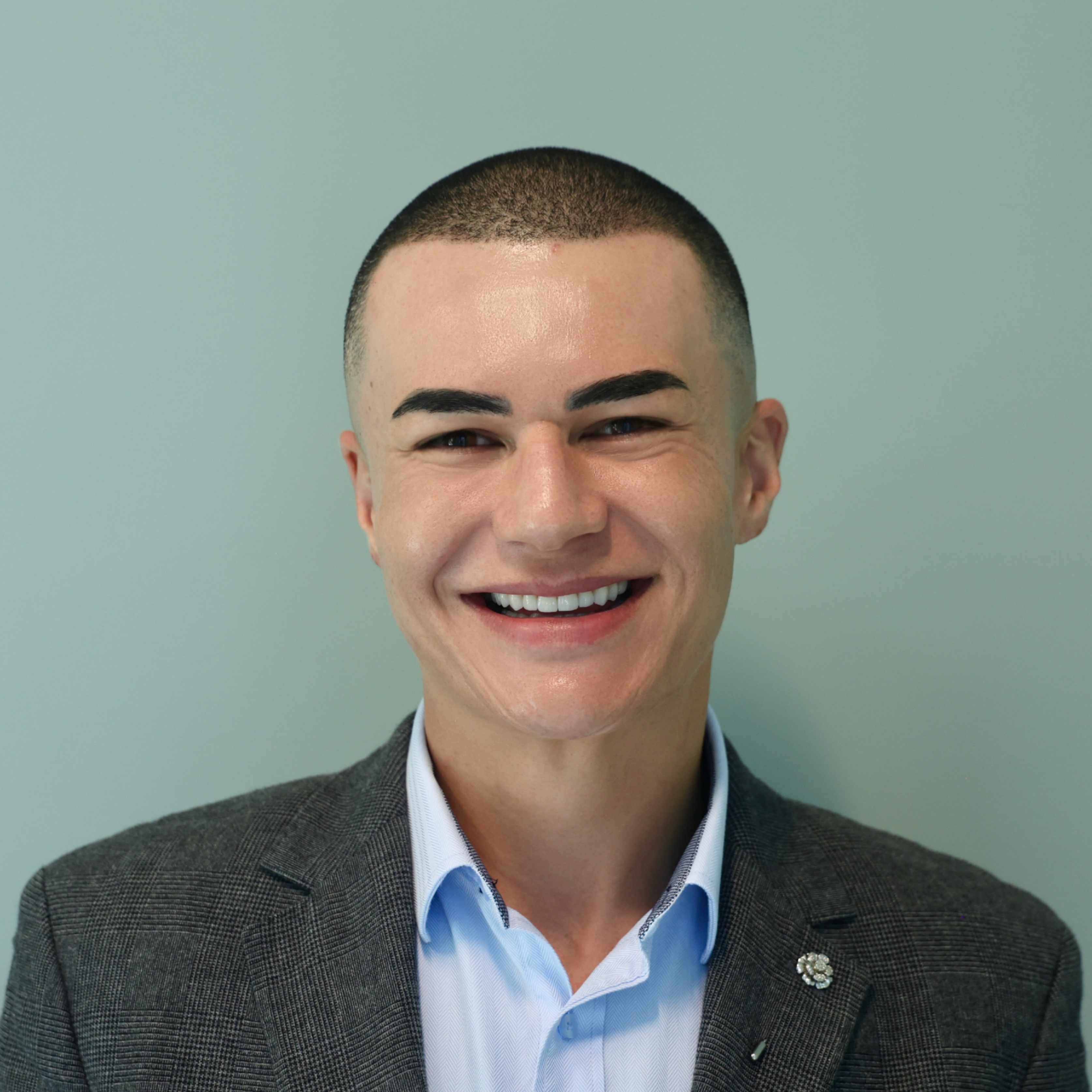 |
Ayden CastroAyden is a highly organised and results-driven Office Manager with extensive experience in office operations, administrative management, and executive support. At ACCAN, he plays a key role in streamlining workflows, enhancing productivity, and fostering a collaborative work environment that supports the organisation’s mission and leadership. |
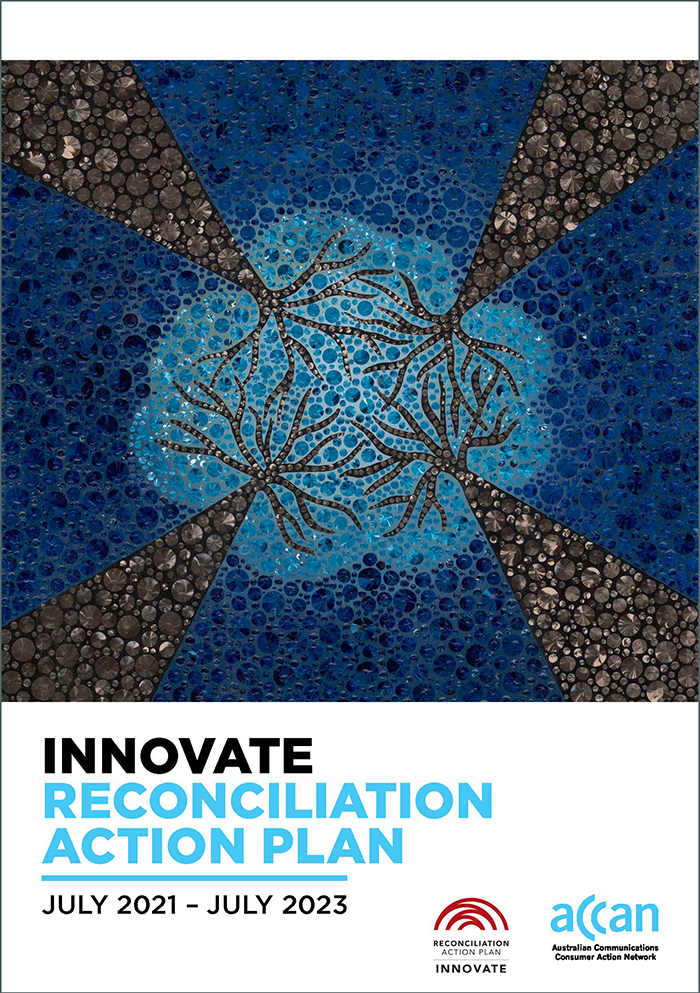 Through our Reconciliation Action Plan (RAP), ACCAN aims to:
Through our Reconciliation Action Plan (RAP), ACCAN aims to:
- build and maintain positive relationships and partnerships with Aboriginal and Torres Strait Islander peoples and communities;
- ensure Aboriginal and Torres Strait Islander members and/or employees of ACCAN are valued for their unique perspectives and experiences;
- support story telling as a culturally important form of communication for Aboriginal and Torres Strait Islander peoples;
- assist in reducing the digital divide for Aboriginal and Torres Strait Islander peoples;
- demonstrate culturally safe engagement with Aboriginal and Torres Strait Islander communities.
ACCAN’s purpose is to work for “communications services that are trusted, inclusive, accessible and available for all.” We need the expertise and support of individuals and organisations to help guide ACCAN’s work towards better outcomes for all communications consumers. ACCAN facilitates opportunities each year through our consultative forums and conference for ACCAN Members to help guide our strategic direction. Become an ACCAN Member and have your voice heard!
The benefits of becoming an ACCAN member are:
We put consumers first
We are a community-based, member-driven, not-for-profit, non-party political organisation.
Be heard:
Tell us about your issues and opinions through direct contact with us. We also have expert Advisory Forums, which members can nominate to join, which help us identify consumer issues and strategies to address them.
Be informed:
Our weekly newsletter will keep you up to date with news and issues affecting consumers and the communications industry. Your membership also means you will receive ACCAN at a Glance which will keep you up to date with our policy, grants and research activities, as well as industry and regulatory news, and tip sheets.
Be equipped:
ACCAN tip sheets and educational resources will help you and your constituents on consumer rights and important issues.
Fight the good fight:
Take part in our campaigns, research and grants projects to help us advocate for consumer rights.
Networking:
Participate in ACCAN Events, including discounted fees for our annual conference, profiling your work and events through our website, find other events and contacts through ACCAN.
Have a say:
Your membership to ACCAN entitles you to nominate and vote for directors on the ACCAN Board. You can also choose to become a non-voting, Associate Member.
Download: ![]() ACCANect Program55.75 KB
ACCANect Program55.75 KB
Download: ![]() ACCANect Program5.23 MB
ACCANect Program5.23 MB
All videos and presentations have been uploaded in the form provided to ACCAN. Where a video is not captioned unedited transcripts as captured on the day are provided. ACCAN endeavours to supply all materials in an accessible format and will update this page with more accessible versions as they become available.
Background
The digital world can be very complex and challenging for consumers to navigate. ACCAN’s goal is available, affordable and accessible communications services for all Australians. As part of the National Year of Digital Inclusion, the ACCANect Conference focused on how to empower consumers to get and stay connected to the phone and broadband services they need.
ACCANect provided opportunities for consumers, providers and government representatives to get up to speed on what’s available now and what’s over the horizon.
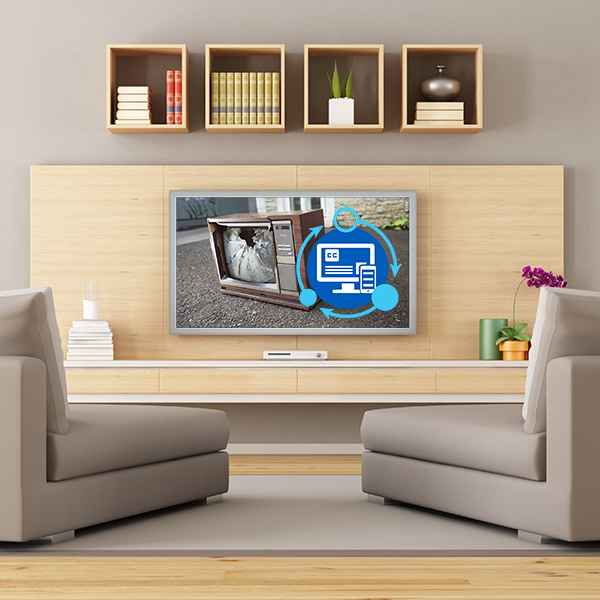
The Broadcasting Services Act should be amended to ensure people with disability can reliably access all free-to-air television.
What is Netflix Australia?
Netflix Australia is a subscription video on demand service provider that allows consumers to watch video entertainment online. Key information about this provider includes:
- Netflix, the parent company of Netflix Australia, operates in over 190 countries around the world, making it one of the largest global online video services.
- Netflix produces original content in addition to streaming the content of others.
- Netflix Australia’s content offers a smaller and different variety of content to Netflix in the United States, but still contains thousands of movies and TV shows available to watch instantly on any device that streams Netflix.
- Subscriptions are monthly and can be cancelled at any time.
How can I join and play videos using Netflix Australia?
To join Netflix Australia, you will need a credit or debit card.
- Go to the Netflix Australia website
- Select the ‘Join free for a month’ button
- Follow the on-screen prompts
Note: If you do not want to be charged for using Netflix Australia, you will need to cancel before the end of your 1-month free trial.
To watch Netflix, you will need a device that is:
- Connected to the internet
- Capable of running a web browser or a Netflix app
Devices can include:
- Smart TV
- Game console
- Streaming media player
- Smartphone or tablet
- Desktop or laptop computer
Specific information can be found on the Netflix Australia Device page
What accessibility features are common to playing videos online?
There are two main features that support the playback of online videos in an accessible way:
- Captions: this is the text version of speech and other sound that can be provided on videos. Captions can be either open (which means the captions are always on) or closed (which allows the consumer to turn the captions on or off).
- Audio description: this is when spoken narration is used to describe visual content. Narration is usually included between bits of dialogue and can be used to describe visual elements such as scenes, settings, actions and costumes.
In addition, the World Wide Web Consortium (W3C) has produced the Web Content Accessibility Guidelines (WCAG) 2.0 to make sure that creators of web and app content can include accessibility features such as captions, audio description and an accessible interface for assistive technology users. A simplified version of this standard is also available.
How accessible is Netflix Australia?
According to research conducted by Curtin University, Perth:
- Closed captions are available on most videos.
- Audio description can be found on some videos.
- The website and apps on devices such as tablets are not entirely WCAG 2.0 compliant, meaning that some users are likely to experience difficulties in finding and playing video content with their assistive technologies.
What tips and tricks can I use to overcome the accessibility barriers on Netflix Australia?
Here are some tips and tricks provided by consumers that have used Netflix Australia to maximise your accessibility:
- Try a different device: consumers have indicated that some platforms may be easier to use with assistive technologies than others. For example, if you are having difficulty with the website, the app on an Android-based tablet or an iOS device such as an iPad may work better with the device’s built-in accessibility features.
- Audio description-only link: the web portal has a link that allows you to just view content with audio description. Just log into Netflix Australia, scroll down to the bottom of the webpage and select ‘audio description’.
- Language icon: to select captions and audio description if available in the web portal, search for the video you would like to play, then select the Language icon in the bottom right corner of the video player. You will then find all the available accessibility features.
- More audio description on the way: a settlement between Netflix and the American Council of the Blind (ACB) and Netflix in April 2016 has led to Netflix committing to make changes to its USA service which is likely to improve Netflix Australia. Improvements discussed in the settlement consist of better searching options and a significant improvement in available titles, particularly new titles.
Are there more accessible video on demand services available?
There are a number of different subscription video on demand services available to consumers, and these services offer different accessible content. With most services offering some form of free trial, it may be worth testing a service to determine which one works best for you. In addition to this tip sheet, Curtin University has also created tip sheets for Stan, Presto, Quickflix and Foxtel Play.
The video I want to play is not accessible. What can I do?
If you are unable to find or play a video due to accessibility issues, there are a number of steps you can take to voice your concerns. Please refer to the Video on Demand Subscription Services: Accessibility and Your Consumer Rights tip sheet created by Curtin University as part of this series or follow the links in the help section below.
Where can I get additional help and information?
For additional help regarding Netflix Australia, you can go to:
The operation of the Australian Communications Consumer Action Network is made possible by funding provided by the Commonwealth of Australia under section 593 of the Telecommunications Act 1997. This funding is recovered from charges on telecommunications carriers.
Mobile broadband plans are designed to be used on the go. The SIM card inserts into one device, such as a tablet or phone. For more than one person or device to connect you need to 'hotspot' the device.
It is important to check that provider offers coverage in your house!
You might be eligible to receive the Centrelink Telephone Allowance to help you pay for your phone and internet connection.
If you are eligible you can receive a payment from the Government of either $28.20 or $42.00 every three months.
You can read more information about whether you can get the Centrelink Telephone Allowance by clicking here.
How can I claim the Centrelink Telephone Allowance?
If the Centrelink Telephone Allowance is not already paid to you as a part of your Centrelink payments, and you would like to receive it, or if you are unsure whether you are eligible, you should contact Centrelink.
You can contact Centrelink:
- By phone (click to find the relevant phone number for you)
- By writing, emailing, or sending a fax (click for addresses and fax number)
- Or by visiting a Centrelink office. You can find the closest one to you on this page.
Download: ![]() ACCAN Magazine - Issue 32 Winter 201911.65 MB
ACCAN Magazine - Issue 32 Winter 201911.65 MB
Download accessible version: ![]() ACCAN Magazine Issue 32 - Winter 2019 - Accessible Version50.56 KB
ACCAN Magazine Issue 32 - Winter 2019 - Accessible Version50.56 KB


